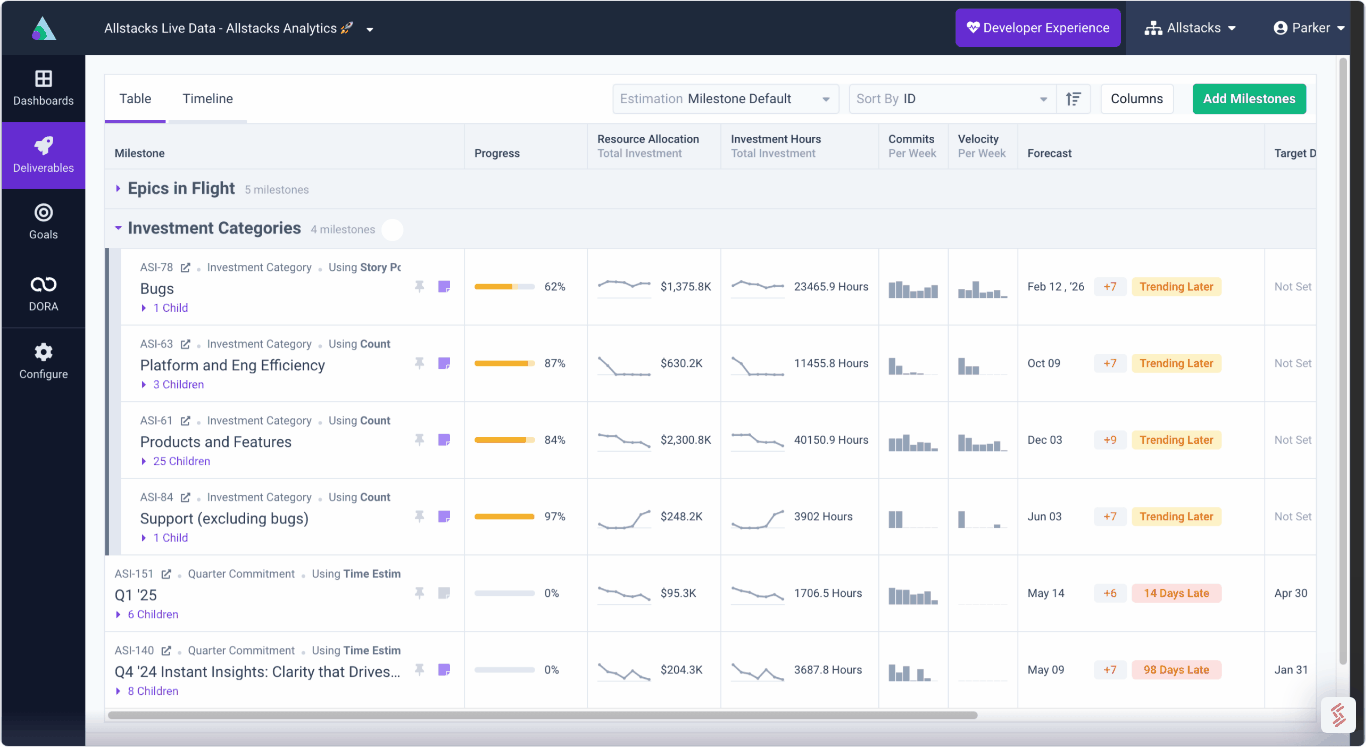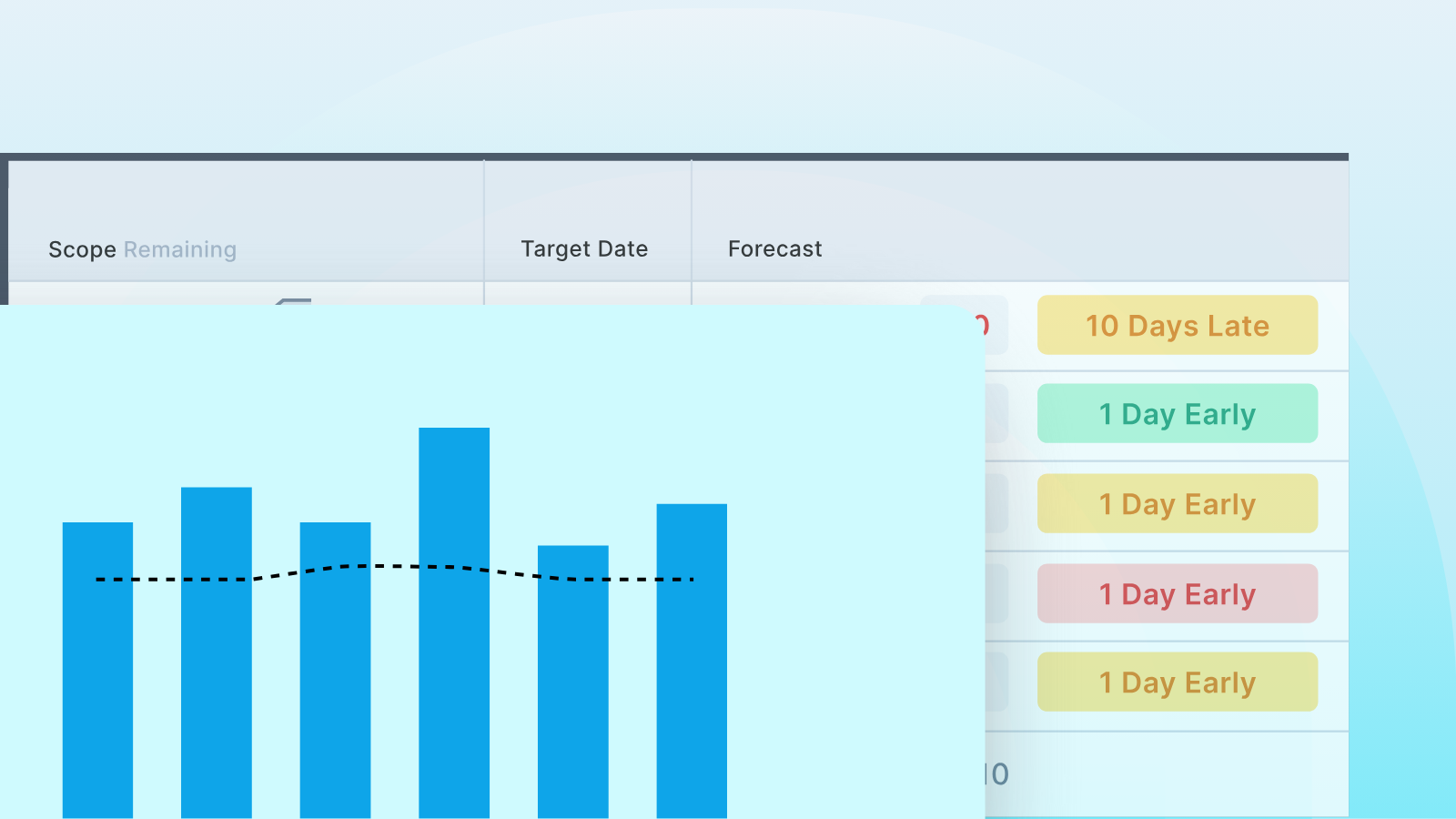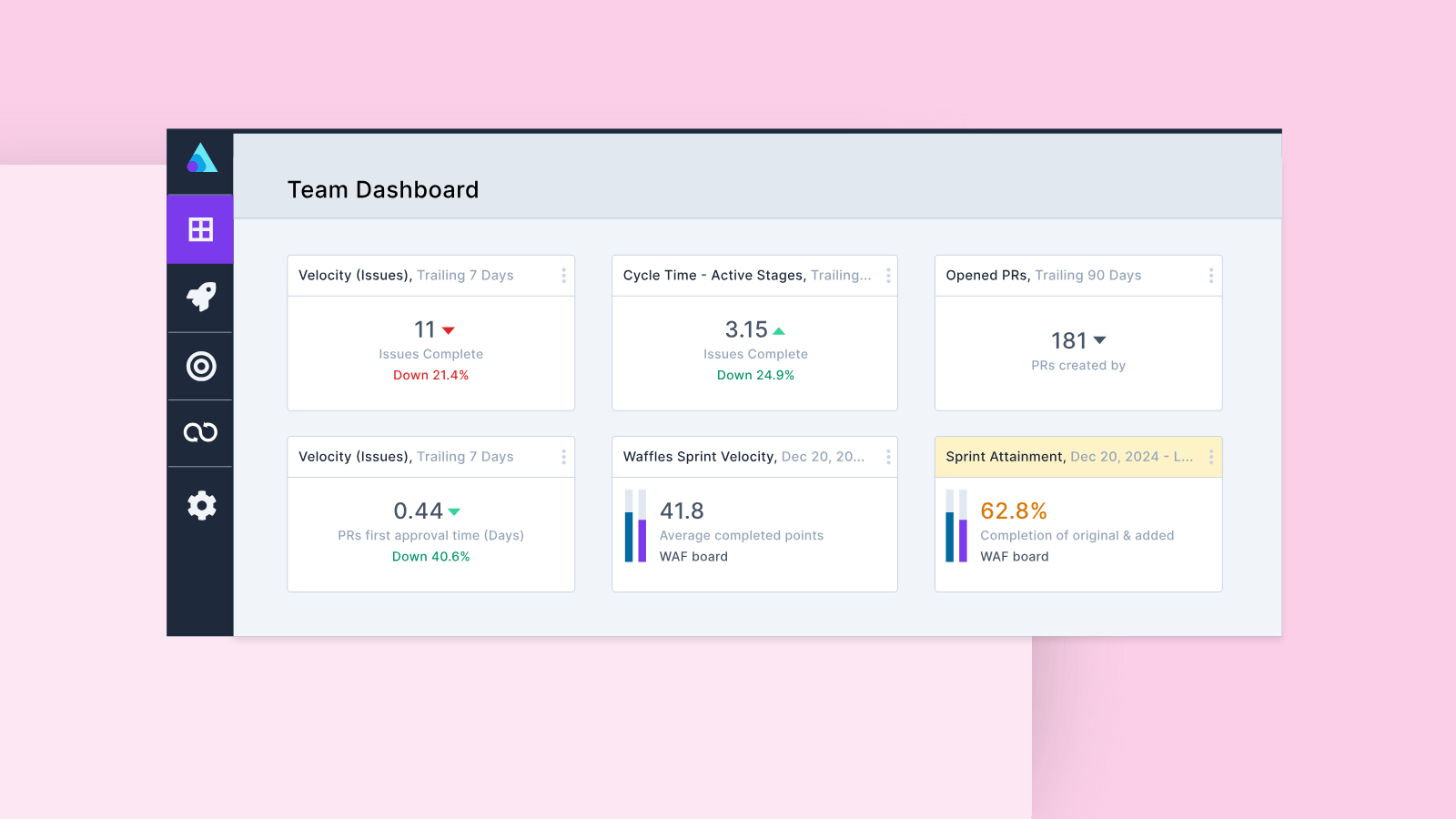.png)
Software Engineering Intelligence
-
Intelligence Engine
On-demand exhaustive AI-analysis
-
Engineering Investment
Complete visibility into time & dollars spent
-
360º Insights
Create meaningful reports and dashboards
-
Project Forecasting
Track and forecast all deliverables
DevEx
-
Developer Surveys
Create and share developer surveys
Software Capitalization
-
R&D Capitalization Reporting
Align and track development costs
Are You Building Software or Building Reports About Building Software?
Let me ask you something that might sting a little: How much time did your team spend this week actually shipping code versus sitting in meetings talking about shipping code?
Yeah, I thought so.
The Metrics Theater That's Eating Your Team Alive
I've been doing this for 40 years. Leading teams for 37. Running the whole show for 30. I've had orgs with 800 people, and here's what nobody wants to admit: Most teams are measuring everything except what actually matters.
Here's the thing about humans - we optimize for whatever you measure us on. Give me 25 KPIs to hit? I'll probably hit none of them well. Give me 2 or 3 that actually matter - speed, focus, quality? Now we're talking.
Your Velocity Metrics Are BS (And You Know It)
Let's get real about velocity for a second. You're hitting 30-35 story points every sprint. Great! Are you actually shipping value? Are your customers happy? Is your production environment on fire?
Velocity hides so much garbage. It's like saying "I drove 100 miles today!" Yeah, but were you going in circles?
When your software breaks and you have to drop everything to fix it, you're not just standing still - you're going backwards. But hey, at least your velocity and burndown charts looked good last sprint, right?
The Question That Should Keep You Up at Night
Want to know the most brutal moment in my career? Sitting in a budget review and having the CEO ask:
"Why is this project three months late and what are you doing about it?"
Not "tell me about your sprint velocity." Not "how's your test coverage?" Just pure, unfiltered: Why can't you deliver what you promised?
That's not just about missed deadlines. That's about trust. When you're the engineering leader and your peers in sales, marketing, and ops don't trust you to deliver - you're done. And throwing technical jargon at them just makes it worse.
What Actually Matters (Spoiler: It's Not What You're Measuring)
After four decades of doing this, here's my dead-simple framework:
Focus: Are you actually working on what you said you'd work on? Not the drive-by requests. Not the "hey, can you just quickly look at this?" If you say yes to everything, you're saying no to what matters.
Quality: Because shipping fast garbage isn't shipping - it's creating future emergencies. Every bug in production is a step backwards, not forwards.
Speed: But the right kind. Cycle time from commit to deploy. Not story points. Not lines of code. (Please, for the love of all that is holy, stop counting lines of code.)
The 90-Day Reality Check
Here's exactly how I run engineering orgs now:
- Pick your battles: What are the 3-5 things you're actually going to ship in the next 90 days? Not 20 things. Not "everything on the roadmap." The real stuff you're committing to.
- Pick your non-battles: What are you explicitly NOT doing? Write it down. Tell everyone. When someone asks for it, point to the list.
- No side deals: Every "quick favor" is a lie. That "30-minute look" turns into a week of someone's time. Just say no.
- Hold the line: When the pressure comes (and it will), don't cave. Changing direction every time someone yells means nothing meaningful ever ships.
The AI Wake-Up Call
Look, I've seen every major shift in software - Windows, the web, mobile, cloud. AI is up there with the internet in terms of game-changing impact.
But here's what everyone's missing: AI accelerates everything, including your bugs. AI doesn't magically make bad engineers good. It makes fast engineers faster - for better or worse.
I'm watching teams ship AI-generated code without proper review because "the AI wrote it, so it must be good." That's not just naive - it's dangerous. Your customers don't care if a bug was written by a human or GPT-4. They just care that your app is broken.
The Only Metrics That Matter in the Real World
When I walk into a Sr Exec meeting or budget review, nobody gives a damn about my burndown charts. They want to know four things:
- Will you deliver on time?
- Will it actually work when you deliver it?
- Will it cost what you said?
- Can you do this consistently?
That's it. Everything else is theater.
The Brutal Truth Nobody Wants to Hear
Every company today runs on software. Every. Single. One. If you're running the engineering org, you have exactly two jobs:
- Keep the lights on (production doesn't break)
- Ship new value (features that matter)
Mess up #1 and nothing else matters. Only do #1 and you're slowly dying. The balance is everything.
Here's my challenge to you: Stop measuring everything that moves. Kill half your dashboards. Cancel half your status meetings.
Instead, answer these questions:
- Are we focused on what we committed to?
- Is our quality improving or declining?
- Are we shipping faster or slower than last quarter?
If you can't answer those three questions in under 30 seconds, you're measuring the wrong things.
Stop building reports about building software. Start building software.
The difference between good engineering orgs and great ones? Great ones measure what matters and ignore the rest. Which one are you?




